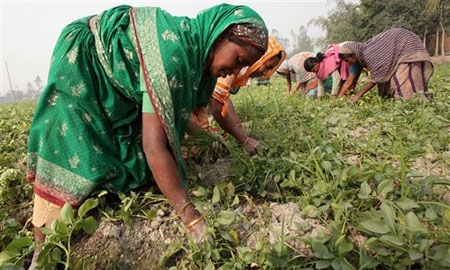Bangladesh is one of the most unfortunate countries in the world with regard to climate change. Despite the fact that it does not contribute to these negative changes, Bangladesh is paying the price for other countries’ industrialisation.
Although various states have made promises to Bangladesh to help combat the issues it faces, few are following through with actions. “The UK is probably one of the very few countries which has kept its promise in terms of helping with mitigating climate change. They have come up with some funds, whereas many others, although they pledged to do so, did not come up with any funding,” says Dr Dipu Moni, Minister of Foreign Affairs.
Both the northern and the southern parts of Bangladesh are affected, in differing but harmful ways. Previously, Bangladesh’s summer lasted for two to three months. Now, however, as the heat increases, so does the duration of summer, which now lasts from five to six months. Gradually, rivers will dry up and the northern half of Bangladesh could turn to desert. An extreme drought would destroy the fertile land that allows Bangladesh to grow its own food, maintain its self sufficiency, and contribute to the country’s main source of GDP: agriculture.
Tropical cyclones have also taken an unexpected turn for the worse, with their numbers and strength increasing. These stronger and more frequent cyclones increase the size and speed of high tide waves, causing more flooding. Many places are gradually sinking in the amount of water that pours over the land. Thousands of people and animals die, and the water’s salt content destroys any standing crops.
It is universally recognised that Bangladesh is vulnerable to these climate changes because it is low lying, located on the Bay of Bengal in a delta, and densely populated. As a result of these problematic changes, the government is putting special emphasis on the conservation of the environment and its development. The government has undertaken integrated policies and plans to protect the country from the impact of global warming by building pollution-free environments and protecting water resources: 134 programs have already been launched to aid in these changes, as promised by the government in its election manifesto.
Bangladesh hosted the CVF (climate vulnerable forum) in November in Dhaka, which gave Bangladesh new visibility in its fight against climate change.

0 COMMENTS